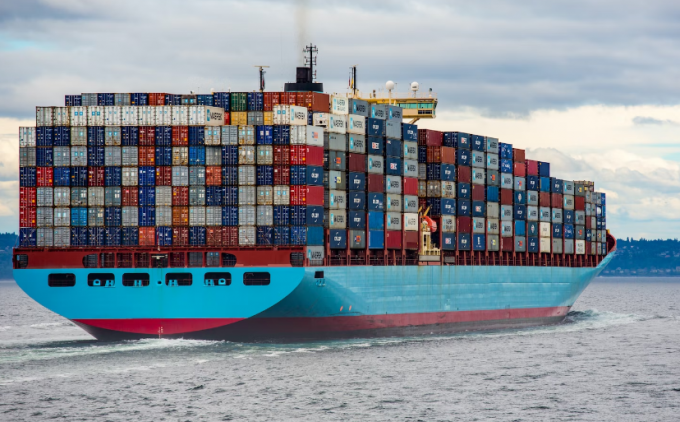How to successfully scale your business for international trade

Unsplash: Ian Taylor
Expanding your business across borders presents you with a multitude of new opportunities, the most important of which is access to a huge marketplace full of new customers and with it the potential to massively increase sales. But before your business expands overseas, you need to make sure you have a solid plan for scaling your business internationally.
As an international company, you face new challenges and it is important that you have a plan to meet them. For example, not planning for the increased pressure that international deliveries can place on your shipping department can result in significant delays and customer dissatisfaction. Likewise, neglecting your cross-border tax compliance can result in financial and legal penalties that can jeopardize your overall expansion.
Avalara helps companies effortlessly enter new markets. We’re committed to helping you meet the challenges of expansion, no matter where your business operates. In this article, we look at why expansion is a good choice and how automation can help you expand successfully.
The Rewards of Cross-Border Trade
Why trade across borders? More often than not, brands want to expand their customer base. Selling internationally as an e-commerce brand can put your business in front of the approximately 2.14 billion consumers worldwide who shop online.
If you’re a pure retailer (meaning you don’t manufacture your own goods but sell branded products), entering new markets can be difficult, but not impossible. A large part of a retailer’s international success is offering products that consumers cannot buy locally. Therefore, consider your products carefully – expanding abroad may mean focusing your marketing on specific goods or launching a new offering for the international market.
Retailers can also face lower margins when selling internationally due to increased costs within their supply chain. However, the costs are likely offset by the higher overall sales they generate by selling to a larger market with many more customers.
It can take some convincing to get your finance team on board with an expansion – they’ll likely ask why the company should spend a significant amount of money to sell cross-border. The simple explanation is that there is a lot of potential in overseas markets. There are more customers, there is more money to be made, and there are more opportunities to build your brand’s story.
Test the waters in new markets
If you’ve explored the many benefits of expansion but aren’t convinced that expanding overseas is a viable option, you can always try yourself as an online marketplace seller before venturing into a full cross-border initiative. By selling through an online marketplace, your business takes fewer risks.
As well as giving hesitant businesses a chance to try cross-border trade, acting as a third party trader on an online marketplace can also help those who are already committed to international expansion. As a marketplace seller, you can check the demand for your products in a foreign market before trading seriously there.
Keep in mind that selling through a marketplace comes with its own set of challenges, such as: B. How to deal with certain tax obligations. If you like the idea of exploring cross-border trading through an online marketplace, check out Avalara’s tax guides on practice. There are separate guides for the EU and the US.
Leverage automation for your cross-border initiatives
Automating cross-border tax compliance
If you want to trade internationally, working out how to stay tax compliant should be a key part of your planning. Automation can help immensely with this task. At its simplest, an automated tax compliance system means having a software tool that can calculate international tax rates and then automatically apply them to a customer’s total when they make a purchase.
As you explore how to automate your compliance processes, notice how easy it is to implement into your existing technology stack. For example, Avalara has over 1,200 signed partner integrations for the most popular e-commerce platforms, accounting systems, and enterprise resource planning tools.
Learn more about how automation can help multinationals in our new white paper, Scaling Your Retail Business. You can also click here to learn more about how Avalara can streamline cross-border tax compliance.
Automation of customs compliance
One particularly important role that automation can play is the application of HS codes to your goods prior to shipment. A Harmonized System (HS) tariff code is a six-digit code used to calculate tariffs on all internationally traded products. Global customs authorities require tariff codes for the classification of goods and services traded worldwide.
Having the correct HS code on your goods is a crucial aspect of customs compliance. For example, an item with an incorrect code can be delayed while customs are identifying it, resulting in delayed delivery and a dissatisfied customer. Worse, items with the wrong HS code are subject to the highest possible customs fees, so mislabeling your goods can eat away at your bottom line.
If you frequently ship a variety of products in bulk, it’s a smart idea to automate the process rather than relying on human workers. Avalara Item Classification uses an AI-based classification engine to quickly categorize products in any industry from retail to manufacturing.
You can also learn more about the Harmonized System and Customs Compliance in our dedicated guide: Are HS Codes Your Business’s Vulnerability?
Build an automated tax compliance system with Avalara
With the help of Avalara, you can make any international expansion a success. Whether your business needs a little help with tax calculations or you’re looking for a full suite of digital solutions to support your international sales, we’re here to help.
Interested in getting started? Contact us today to speak to one of our experts.